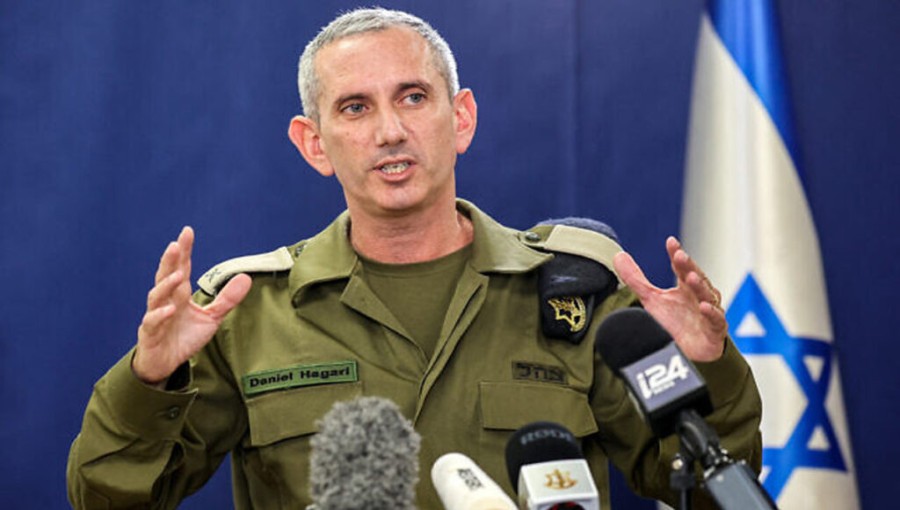Israel remains on high alert and has not yet responded militarily, 24 hours after an unprecedented attack on its territory by Iran. In a televised statement, Israel Defense Forces (IDF) spokesperson Daniel Hagari stated that they are closely monitoring the situation and discussing both defensive and offensive plans.
According to Hagari, Iran and its proxies launched approximately 350 drones, cruise missiles, and ballistic missiles in Saturday night's attack, carrying about 60 tons of warheads and explosives. The attacks originated from multiple locations including Iran, Iraq, Yemen, and Lebanon. However, Hagari claimed that the IDF successfully intercepted 99 percent of the incoming drones and missiles.
Hagari emphasized the importance of working with allies to protect the country, stating that Iran's actions pose a threat not only to Israel but to the entire Middle East. He noted that Iran has demonstrated its intent to escalate the conflict, seeking to create instability in the region.
Earlier, Defense Minister Benny Gantz affirmed that Israel would respond to the attack at the appropriate time. The IDF spokesperson underscored that Iran's agenda has been focused on creating tension in the region, particularly since the conflict with Hamas began, and they continue to pursue this objective through proxy warfare and attempts to sow instability.





























Comment: